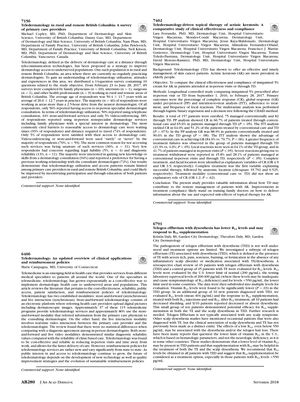Teledermatology: An Updated Overview of Clinical Applications and Reimbursement Policies
August 2018
in “
Journal of The American Academy of Dermatology
”

TLDR Teledermatology could improve skin care access, but its success depends on technology, quality strategies, and payment policies; also, vitamin B12 might help treat a specific hair loss condition.
The document presents findings from several studies on teledermatology and its applications, as well as a study on telogen effluvium with dysesthesia (TED).
The first study surveyed primary care providers in rural and remote British Columbia to understand the utilization, attitudes, and experiences with teledermatology. It found that access to dermatology care was limited, with only 5% of respondents satisfied with their access. The majority of respondents rarely or never used videoconferencing or store-and-forward teledermatology, often due to a lack of awareness of these services.
The second study reviewed the literature on teledermatology, highlighting its cost-effectiveness and reliability in providing dermatologic care to underserved areas. It noted that reimbursement policies for teledermatology services are new and vary by state, suggesting that the future of teledermatology depends on the development of new technology, quality improvement strategies, and sustainable reimbursement policies.
The third study compared the clinical effectiveness and compliance of imiquimod 5% cream for actinic keratosis in patients managed through conventional care versus teledermatology. It found no significant difference in complete response rates between the two groups, suggesting that teledermatology can be an effective management tool for actinic keratosis.
The fourth study investigated a subtype of telogen effluvium associated with dysesthesia (TED) and found that patients with TED had significantly lower vitamin B12 levels. Supplementation with B12 showed potential efficacy in reducing both hair shedding and scalp dysesthesia symptoms in a small group of patients, indicating that B12 supplementation could be a treatment option for TED, especially in patients with B12 levels below 550 pg/mL.
Overall, the document emphasizes the potential of teledermatology to improve access to dermatologic care and the importance of addressing barriers to its use. It also suggests a possible link between low vitamin B12 levels and TED, with B12 supplementation as a potential treatment.




